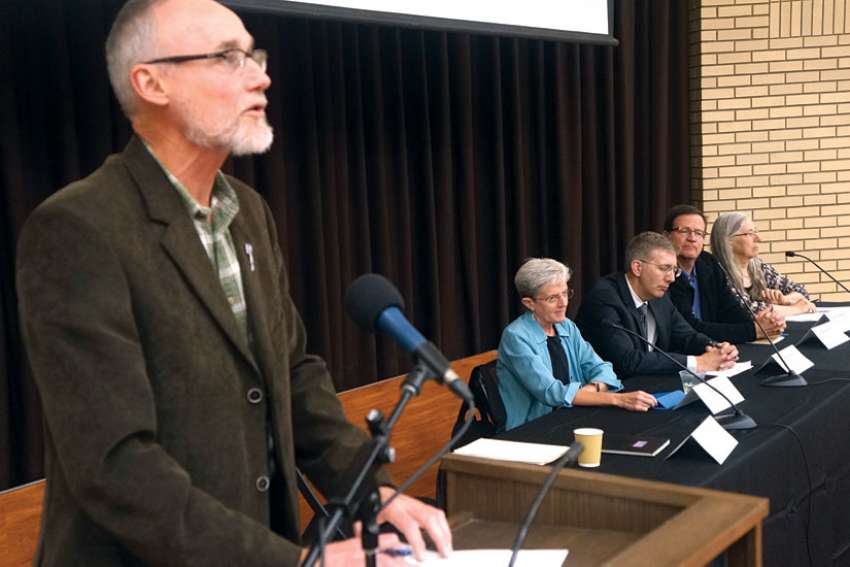These communities can encourage conversations about several key issues, such as basic income, said Sr. Sue Wilson, co-chair of the board of the London Poverty Research Centre.
Central to a new vision is seeing the person before you as a neighbour instead of a burden, she said.
Speaking on a panel at the Ending Poverty in Canada Conference organized by Citizens for Public Justice (CPJ) at Saint Paul University, Wilson said having community members mix with researchers and political activists at her London research centre created “significant synergy.”
“It took communication to a much deeper level,” she said.
When the idea of seeing a person struggling with poverty as a neighbour instead of burden was presented at a gathering of these groups, it “stirred up a momentum for change in that room I haven’t seen in many rooms,” she said.
Addressing poverty is not a matter of small changes, “we need transformation,” she said. The conversation has to go deeper to “identity and meaning.”
The economy is in transition and that transition is “leaving far too many behind,” she said. Will society “step up to make its own transformation” as the economy changes?
“Too few faith communities see the connection between the policies they vote for and their implications” in terms of barriers they may create or the people they may marginalize, she said.
Derek Cook, director of the Canadian Poverty Research Institute at Ambrose University in Calgary, said his organization takes a multi-dimensional approach that examines material, social and spiritual poverty.
When talking about poverty, one immediately starts talking about money which leads into a “world of scarcity” and the “framework that there’s not enough to go around,” he said. Speaking of limited resources and unlimited needs “leads to an ‘us and them’ conversation.”
Poverty does not need to be fixed, it needs to be healed, he said. “The fix-it approach treats people as objects rather than whole persons.”
Faith communities can help find new language so poverty is not about “compromised relationships driven by the ideology of scarcity” but about “abundance, resilience and community,” or the acronym ART, Cook said. This is a way to introduce missing “moral and ethical” concepts into the conversation.
Kathy Vandergrift, a writer and Child Rights Advocate, closed out the panel urging citizens to persuade political leaders to “reject the language of trade-offs.”
There’s a “media push” to see things in terms of “winners and losers,” she said. “We can have both.”
She also warned against the tendency to pit levels of government against each other. Citizens need to play an active role in encouraging co-operation, because they can interact at both the federal and the provincial levels.

